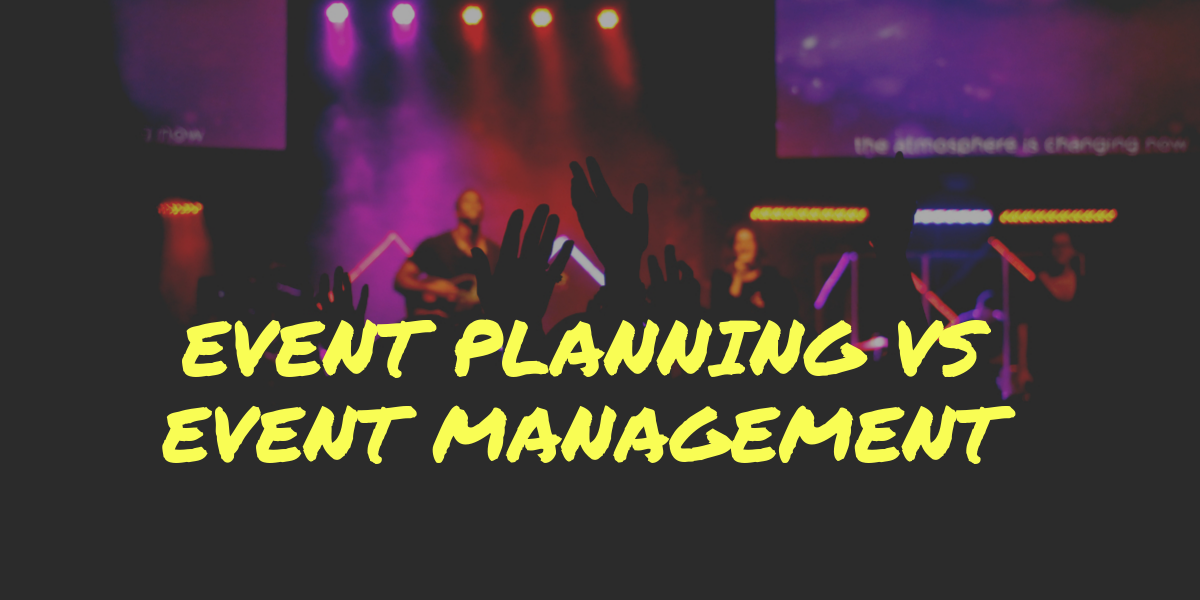Transform Your Next Collecting with Specialist Event Productions Techniques
Transform Your Next Collecting with Specialist Event Productions Techniques
Blog Article
Recognizing Exactly How Events Production Functions: A Comprehensive Overview of the Process
The ins and outs of event manufacturing demand a systematic strategy that incorporates numerous phases, each playing a vital function in the general success of an event. Comprehending the subtleties of budgeting, source allocation, and on-site management is vital for any kind of expert in this area.
Initial Planning and Concept Advancement
Effective preliminary planning and principle development work as the foundation for effective events production. This stage involves specifying the occasion's objective, target audience, and wanted results. A clear vision is necessary; it overviews all succeeding choices and helps straighten the group's initiatives towards a typical objective.
Throughout this stage, brainstorming sessions can be important. Engaging stakeholders, consisting of customers, enrollers, and possible guests, fosters a joint environment that generates cutting-edge concepts. In addition, detailed marketing research need to be conducted to comprehend trends, choices, and possible challenges.
When the idea is developed, it is important to produce a comprehensive occasion synopsis. This synopsis should include the occasion's motif, layout, and key tasks. Establishing a timeline is just as important, as it aids to manage tasks and deadlines effectively.
Budgeting and Source Appropriation
With a solid principle in location, focus has to turn to budgeting and source allotment, which are important components in performing the event efficiently. A distinct budget serves as a roadmap, outlining all anticipated costs and offered sources - Event Productions.
Source allocation includes appointing both human and monetary resources to different jobs and components of the occasion. Prioritization is key; necessary elements need to receive appropriate financing while less vital aspects may need an extra traditional approach. Contingency planning is vital-- allocating a portion of the budget plan for unexpected expenses can alleviate financial risks.
Furthermore, efficient interaction among employee regarding budget plan restraints fosters cooperation and advancement. This promotes the responsible use sources and motivates imaginative solutions to remain within spending plan. Inevitably, a calculated approach to budgeting and resource appropriation prepares for an effective occasion, allowing organizers to concentrate on delivering a remarkable experience for participants while keeping monetary honesty.
Logistics and Sychronisation
Browsing the complexities of logistics and coordination is necessary for the smooth implementation of any event. This stage entails thorough planning and organization to ensure that all elements operate in consistency. Crucial element include location selection, transportation plans, and the organizing of various activities.
Reliable logistics begins with a detailed assessment of the venue's capabilities and constraints. This consists of recognizing the format, access points, and offered sources. As soon as the place is validated, transportation logistics should be established, including the motion of participants, tools, and products. Coordinating these elements requires partnership with vendors, vendors, and transport solutions to make sure timely shipments and pickups.
Another vital facet is the growth of a comprehensive timeline that outlines all logistical components leading up to the event. This timeline functions as a roadmap, detailing key turning points and due dates for tasks such as devices arrangement, providing solutions, and audiovisual installations. Regular Get More Information communication with all stakeholders is important to deal with any kind of potential problems proactively.
Execution and On-Site Administration
Successful implementation and on-site management are critical for changing careful plans right into truth during an occasion. Their capability to make real-time decisions can significantly influence the event's success.
A distinct routine is important, offering as a roadmap for all activities. Occasion managers have to make sure that setup takes place in a timely manner, adhering to timelines for audio checks, providing shipments, and guest arrivals. Reliable problem-solving abilities are likewise essential; unforeseen obstacles can occur, calling for fast reasoning and adaptability to keep the event's circulation.
Furthermore, attention to guest experience is extremely important. Checking guest communications, ensuring security methods are adhered to, and supplying support personnel to resolve worries promotes a positive environment. This degree of interaction not just boosts the overall experience but also shows the expertise of the occasion group. Event Productions. Inevitably, effective implementation and on-site administration rest on thorough prep work, reliable interaction, and a dedication to providing an extraordinary event for all included.

Post-Event Examination and Comments
The conclusion of any type of occasion exists not just in its execution but additionally in the complete assessment that follows. Post-event analysis is crucial for establishing the general success of the occasion and identifying locations for renovation. This procedure usually involves celebration comments from numerous stakeholders, including attendees, vendors, and employee, to acquire a thorough point of view on their experiences.
To structure the analysis, find event coordinators frequently use meetings and studies, focusing on crucial efficiency indicators such as participant contentment, logistical efficiency, and budget plan adherence. Assessing this data enables coordinators to analyze whether the event met its goals and to recognize the staminas and weak points of the execution.
By systematically addressing comments and carrying out adjustments, occasion experts can boost their methods, eventually leading to even more impactful and successful events. In conclusion, post-event evaluation is a crucial step in the event production process that makes certain continuous growth and excellence in future undertakings (Event Productions).
Final Thought

The complexities of occasion production need a methodical strategy that integrates numerous stages, each playing a critical duty in the overall success of an occasion.With a strong idea in place, interest must transform to budgeting and source allotment, which are essential elements in implementing the event efficiently.Resource allowance entails assigning both economic and human resources to numerous tasks and parts of the event. Eventually, a critical approach to budgeting and resource allotment lays the foundation for a successful event, making it possible for planners see this site to focus on providing a remarkable experience for attendees while maintaining monetary honesty.

Report this page